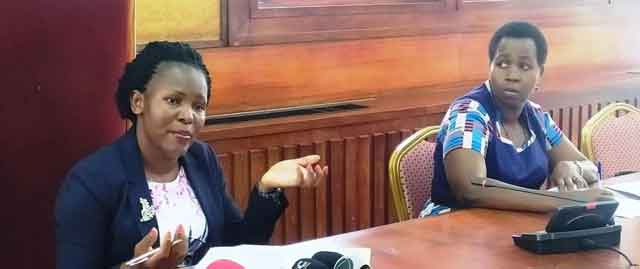
Kampala, Uganda | THE INDEPENDENT | Female legislators have called for increased funding to the Uganda Communications Commission in order to reduce the digital divide in the proposed virtual campaigns.
The legislators under their umbrella group the Uganda Women Parliamentary Association (UWOPA) observed that UCC needs to support voters and candidates to use digital tools ahead of the 2021 general elections. According to a roadmap released recently by the Electoral Commission, candidates will only be allowed to use virtual platforms to reach the electorate in the wake of the COVID-19 pandemic.
The women also called for a law promoting digital public goods through open data and free Wi-Fi all over the country, and a waiver of taxes such as the Off-the-Top (OTT) to include the most vulnerable who are at the greatest risk of being left out as campaigns go digital.
UWOPA Chairperson Pamela Kamugo said that citizen participation in the electoral processes is a foundation for democratic governance as espoused in the Constitution and that it is crucial and significant that any recommendations and actions proposed by the electoral body promote the basic tenets of participation of all citizens without discrimination in sex, gender and class, among others.
“While digital innovations such as the use of technology and internet tools in campaigns are powerful and essential …, a digital divide is likely to hinder citizens from exercising their political rights,” Kamugo told journalists on Thursday.
She added that digitization of campaigns is a new concept for Uganda and that the capacity of both voters and candidates to utilize media platforms is limited. She urged UCC to develop an operation guide and costing for all private media platforms to avoid hiking of costs during the electoral period.
Mitooma Woman MP Jovah Kamateeka expressed fear that the media owners may take sides with particular candidates and deny others a right to campaign. She argued that the majority of the radio stations are owned by politicians, an issue which is likely to limit access by new entrants on the political scene.
Similarly, Koboko Woman MP Margaret Baba Diri also said that the digital campaigns are not efficient and present a disadvantage to candidates and voters in terms of cost.
Meanwhile, UWOPA observes that there is limited exposure and skill in engaging the media by women compared to men and that it is further affected by their limited ownership and use of phones and internet. According to the financial year 2016/2017 Uganda National Household Survey, the literacy rate is lower in women accounting for 70 per cent than males whose percentage stood at 78 per cent.
The women leaders say that the low literacy rate for women is a hindrance to effectively utilize social media platforms. They argue that spending on the internet might not be a priority for the majority of the women in the face of other competing needs such as food and medicine.
********
URN
 The Independent Uganda: You get the Truth we Pay the Price
The Independent Uganda: You get the Truth we Pay the Price





